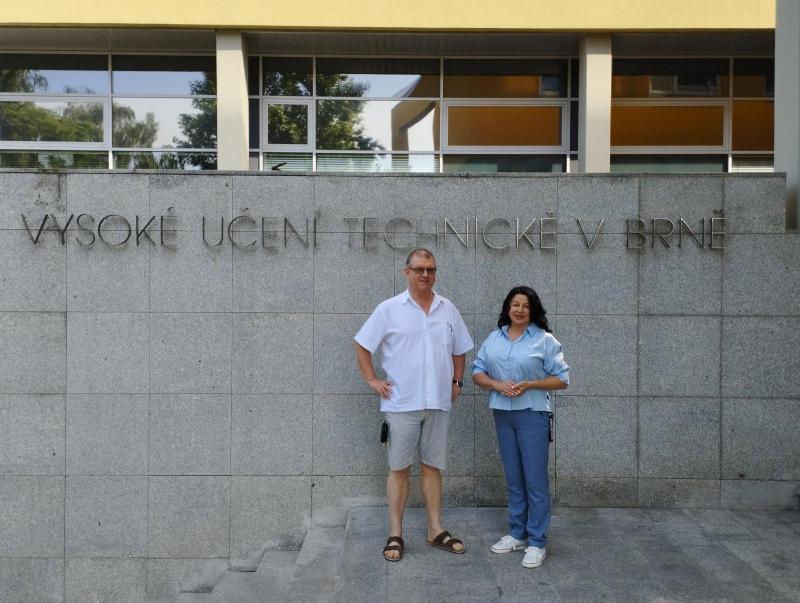FCH BUT with NATO support aims to revitalize war-affected soil in Ukraine
Czech and Ukrainian scientists will collaborate over the next two years on a project focused on monitoring and analyzing the condition of agricultural soil in Ukraine affected by military operations. The initiative is funded and supported by the North Atlantic Treaty Organization (NATO). The goal is to share expertise and laboratory soil analysis methods to determine whether – and to what extent – Ukrainian agricultural land has been contaminated due to the war. The results will be vital not only for food security but also for developing methods to rehabilitate damaged areas.

Global food security
Ukraine is one of the world’s largest exporters of sunflower oil and a major producer of grain, corn, sugar, honey, eggs, and poultry meat. The quality of this production depends on the condition of agricultural soil, which covers around 42 million hectares. However, since Russia’s military invasion began in February 2022, large areas of land have been damaged –either by military equipment or chemical contamination. Last year’s environmental disaster caused by the destruction of the Kakhovka dam further highlighted the urgency of addressing these issues, whose consequences are likely to persist for decades.
Ukrainian agricultural production is considered by the UN to be a key element in solving the global food problem. For Ukraine, restoring its agricultural soil is crucial to fulfilling international commitments and mitigating the global hunger crisis.
The Faculty of Chemistry, Brno University of Technology, has decided to assist in tackling these environmental threats. Together with the Ukrainian Association of Innovation Laboratories, it is managing the project Improving the Monitoring of the State of Agricultural Land Affected by Military Operations, funded through NATO’s Science for Peace and Security programme. NATO not only provides funding for each phase but also offers expert consultation and other support to help achieve the project’s goals and ensure researchers’ safety.
Scientific contribution of BUT
The scientific activities at FCH BUT are led by the Institute of Physical and Applied Chemistry, with Professor Miloslav Pekař as the principal investigator. “Our department has long focused on soil organic matter and has experience with its physicochemical characterization. The Czech team will concentrate on analyzing the organic component of soil samples – their content and any structural or compositional changes. The organic component may be more vulnerable to unusual disruptions. The Ukrainian side will focus primarily on the soil’s physical properties,” explains Professor Pekař.
The project will enable the purchase of new laboratory equipment essential for analyzing soil nutrient content and identifying potential contaminants. The Ukrainian team will follow methodology based on granulometric analysis, while the Czech side will investigate organic matter content. The results will provide the basis for agronomic recommendations to improve farming practices in Ukraine. A short documentary film will also be produced to showcase the collaboration, and it will be published on the project website.
This is the first project of its kind at BUT to be approved by the grant provider. “Cooperation with NATO is not only prestigious but also an opportunity to enhance professional expertise, share research data, and effectively address current security challenges,” says project manager Eva Maršalová. According to her, the project will also strengthen BUT’s reputation on the international stage and deepen research collaboration between the Czech Republic and Ukraine.

Among the biggest challenges, she mentions the language barrier and the administrative complexity of coordinating an international team. Technical difficulties, such as unstable electricity supplies in Ukraine, also hinder communication. A major risk at any stage of the project is the threat of missile strikes, making it crucial for the Ukrainian team to monitor government warning alerts closely.
After the project concludes, its results will support national and international initiatives focused on restoring agricultural soil and production. Both the Czech and Ukrainian teams are ready to apply their findings in future international projects to contribute to global soil sustainability.
–jo–
| Published | |
|---|---|
| Link | https://www.fch.vut.cz/en//f96620/d264884 |